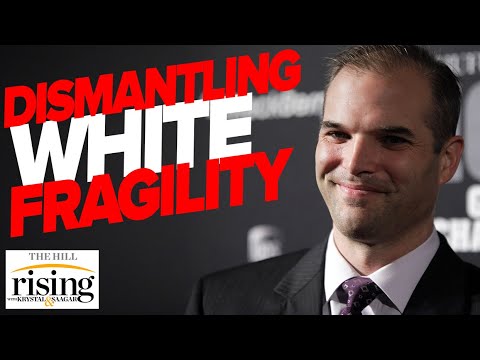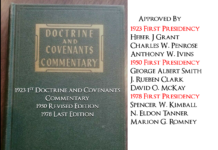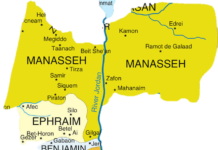White Fragility: Why It’s So Hard for White People to Talk About Racism is a 2018 book written by Robin DiAngelo about race relations in the United States. An academic with experience in diversity training, DiAngelo coined the term “white fragility” in 2011 to describe any defensive instincts or reactions that a white person experiences when questioned about race or made to consider their own race. In White Fragility, DiAngelo views racism in the United States as systemic and often perpetuated unconsciously by individuals. She recommends against viewing racism as committed intentionally by “bad people”.
Published on June 26, 2018, the book entered the New York Times Bestseller List that month, remaining on the list for well over a year and experiencing a resurgence in demand during the George Floyd protests beginning in May 2020. As of the July 26, 2020 edition, the book is in its 97th week on the list in the Paperback Nonfiction category, where it is ranked number one. Critically, the book received generally positive reviews following its publication. It received more mixed reviews in the aftermath of the George Floyd protests two years later. Some reviewers lauded the book for being thoughtful and instructive, but characterized it as diagnostic rather than solution-oriented. Other reviewers criticized the book for making false claims about race and racism in America, for putting whites in a situation where anything they say is used against them, for infantilizing black people, and for doing nothing to promote racial justice. Wikipedia
No Guilt for being a Child of God
Personally as a “White Person”, I feel no guilt for being white. I feel blessed to be a child of God. My spirit came from a Heavenly Father and my parents who both happened to be white created my body. I know Heavenly Father loves all of His children and all of us have an equal opportunity to succeed or fail in this life. We will never have equal outcome as we all have our own individual freedom of choice.
I don’t need to overcome any silly white fragility, I just need to love my neighbor as myself. Christ is my Savior and it is He I must obey not someone who wrote a book of nonsense.
More and more society it trying to replace God with man. They don’t want to live by God’s law as it is seemingly judgmental. These people don’t want any judgement they want no restrictions on what ever they want, even if it is illegal or immoral. Please be aware of this harmful idea called White Fragility.
The Dehumanizing Condescension of White Fragility

The popular book aims to combat racism but talks down to Black people.
I must admit that I had not gotten around to actually reading Robin DiAngelo’s White Fragility until recently. But it was time to jump in. DiAngelo is an education professor and—most prominently today—a diversity consultant who argues that whites in America must face the racist bias implanted in them by a racist society. Their resistance to acknowledging this, she maintains, constitutes a “white fragility” that they must overcome in order for meaningful progress on both interpersonal and societal racism to happen.
White Fragility was published in 2018 but jumped to the top of the New York Times best-seller list amid the protests following the death of George Floyd and the ensuing national reckoning about racism. DiAngelo has convinced university administrators, corporate human-resources offices, and no small part of the reading public that white Americans must embark on a self-critical project of looking inward to examine and work against racist biases that many have barely known they had.
I am not convinced. Rather, I have learned that one of America’s favorite advice books of the moment is actually a racist tract. Despite the sincere intentions of its author, the book diminishes Black people in the name of dignifying us. This is unintentional, of course, like the racism DiAngelo sees in all whites. Still, the book is pernicious because of the authority that its author has been granted over the way innocent readers think.
MORE BY THIS WRITER
Reading white fragility is rather like attending a diversity seminar. DiAngelo patiently lays out a rationale for white readers to engage in a self-examination that, she notes, will be awkward and painful. Her chapters are shortish, as if each were a 45-minute session. DiAngelo seeks to instruct.

She operates from the now-familiar concern with white privilege, aware of the unintentional racism ever lurking inside of her that was inculcated from birth by the white supremacy on which America was founded. To atone for this original sin, she is devoted to endlessly exploring, acknowledging, and seeking to undo whites’ “complicity with and investment in” racism. To DiAngelo, any failure to do this “work,” as adherents of this paradigm often put it, renders one racist.
As such, a major bugbear for DiAngelo is the white American, often of modest education, who makes statements like I don’t see color or asks questions like How dare you call me “racist”? Her assumption that all people have a racist bias is reasonable—science has demonstrated it. The problem is what DiAngelo thinks must follow as the result of it.
DiAngelo has spent a very long time conducting diversity seminars in which whites, exposed to her catechism, regularly tell her—many while crying, yelling, or storming toward the exit—that she’s insulting them and being reductionist. Yet none of this seems to have led her to look inward. Rather, she sees herself as the bearer of an exalted wisdom that these objectors fail to perceive, blinded by their inner racism. DiAngelo is less a coach than a proselytizer.
When writers who are this sure of their convictions turn out to make a compelling case, it is genuinely exciting. This is sadly not one of those times, even though white guilt and politesse have apparently distracted many readers from the book’s numerous obvious flaws.
For one, DiAngelo’s book is replete with claims that are either plain wrong or bizarrely disconnected from reality. Exactly who comes away from the saga of Jackie Robinson thinking he was the first Black baseball player good enough to compete with whites? “Imagine if instead the story,” DiAngelo writes, “went something like this: ‘Jackie Robinson, the first black man whites allowed to play major-league baseball.’” But no one need imagine this scenario, as others have pointed out, because it is something every baseball fan already knows. Later in the book, DiAngelo insinuates that, when white women cry upon being called racists, Black people are reminded of white women crying as they lied about being raped by Black men eons ago. But how would she know? Where is the evidence for this presumptuous claim?
An especially weird passage is where DiAngelo breezily decries the American higher-education system, in which, she says, no one ever talks about racism. “I can get through graduate school without ever discussing racism,” she writes. “I can graduate from law school without ever discussing racism. I can get through a teacher-education program without ever discussing racism.” I am mystified that DiAngelo thinks this laughably antique depiction reflects any period after roughly 1985. For example, an education-school curriculum neglecting racism in our times would be about as common as a home unwired for electricity.
DiAngelo’s depiction of white psychology shape-shifts according to what her dogma requires. On the one hand, she argues in Chapter 1 that white people do not see themselves in racial terms; therefore, they must be taught by experts like her of their whiteness. But for individuals who harbor so little sense of themselves as a group, the white people whom DiAngelo describes are oddly tribalist when it suits her narrative. “White solidarity,” she writes in Chapter 4, “requires both silence about anything that exposes the advantages of the white population and tacit agreement to remain racially united in the protection of white supremacy.” But if these people don’t even know whiteness is a category, just what are they now suddenly defending?
Diangelo also writes as if certain shibboleths of the Black left—for instance, that all disparities between white and Black people are due to racism of some kind—represent the incontestable truth. This ideological bias is hardly unique to DiAngelo, and a reader could look past it, along with the other lapses in argumentation I have noted, if she offered some kind of higher wisdom. The problem is that White Fragility is the prayer book for what can only be described as a cult.
We must consider what is required to pass muster as a non-fragile white person. Refer to a “bad neighborhood,” and you’re using code for Black; call it a “Black neighborhood,” and you’re a racist; by DiAngelo’s logic, you are not to describe such neighborhoods at all, even in your own head. You must not ask Black people about their experiences and feelings, because it isn’t their responsibility to educate you. Instead, you must consult books and websites. Never mind that upon doing this you will be accused of holding actual Black people at a remove, reading the wrong sources, or drawing the wrong lessons from them. You must never cry in Black people’s presence as you explore racism, not even in sympathy, because then all the attention goes to you instead of Black people. If you object to any of the “feedback” that DiAngelo offers you about your racism, you are engaging in a type of bullying “whose function is to obscure racism, protect white dominance, and regain white equilibrium.”
That is a pretty strong charge to make against people who, according to DiAngelo, don’t even conceive of their own whiteness. But if you are white, make no mistake: You will never succeed in the “work” she demands of you. It is lifelong, and you will die a racist just as you will die a sinner.
Remember also that you are not to express yourself except to say Amen. Namely, thou shalt not utter:
I know people of color.
I marched in the sixties.
You are judging me.
You don’t know me.
You are generalizing.
I disagree.
https://www.theatlantic.com/ideas/archive/2020/07/dehumanizing-condescension-white-fragility/614146/





